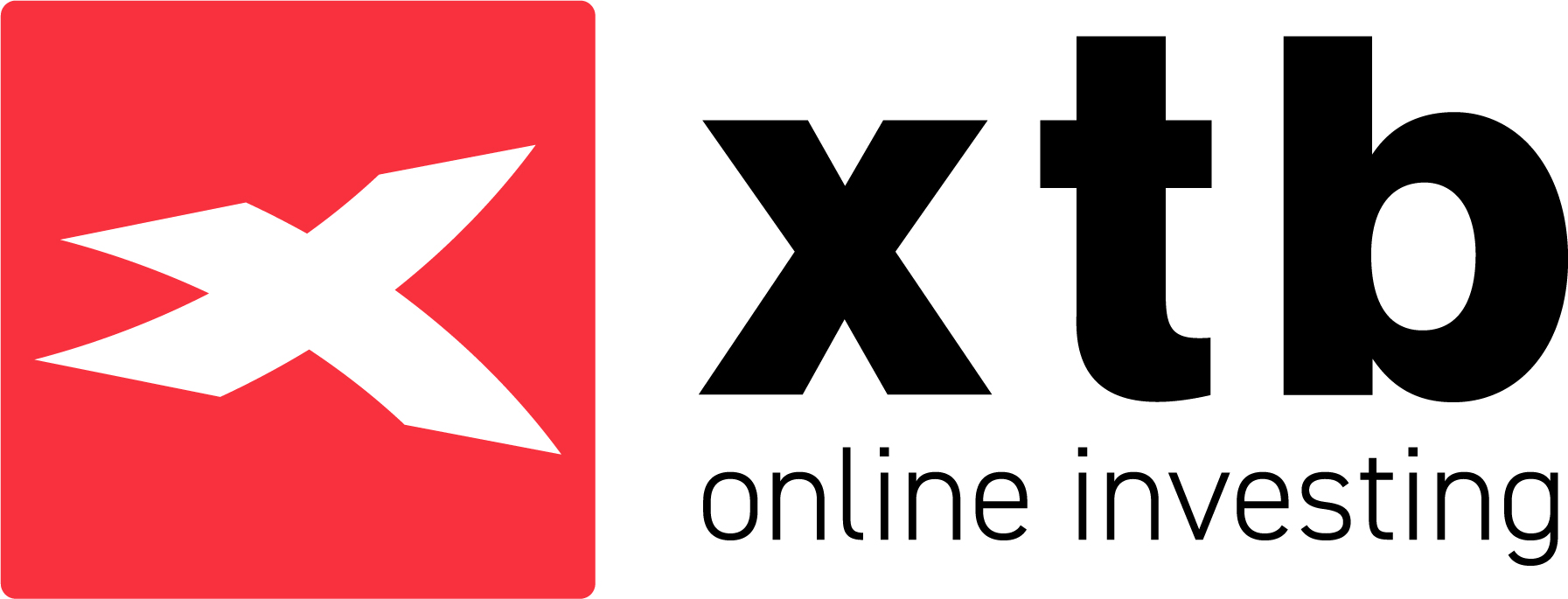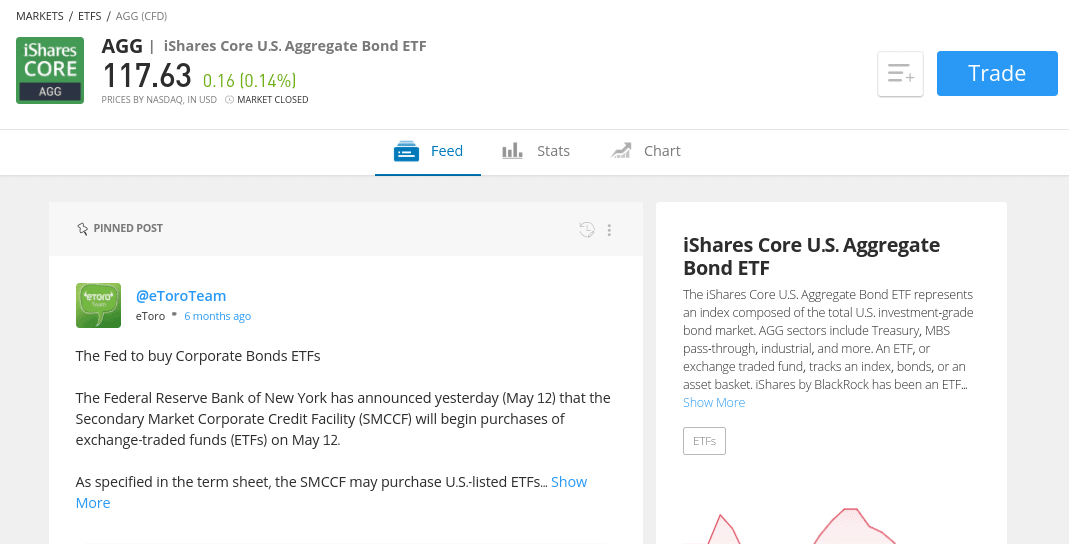Best ETF Broker UK – Top Platforms Compared
Even expert traders find it hard to choose a reliable ETF broker in the UK. The reality is that nobody likes to wade through hundreds of search results looking for a popular ETF trading platform UK. With so many options out there it can be hard to choose the right one for your needs and trading goals. In this guide we cover everything you need to know about exchange-traded funds.
Exchange-traded funds (ETFs) offer many benefits to investors based in the UK. In particular, they allow you to diversify across hundreds of assets through a single investment. ETFs are also a option if you want to invest money in the financial markets but you don’t have much experience.
Key Points on ETF Brokers in UK
- Investors usually trade ETFs on both traditional brokers and CFD brokers in the UK. When using a UK ETF broker, you don’t actually own the ETFs, but are instead trading on the price.
- Choosing a UK ETF broker that also offers other asset classes allows users to create a diversified portfolio.
List of Popular ETF Brokers in the UK 2023
Here’s an overview of popular ETF brokers in the UK. Scroll down to read our full review on each broker.
-
- XTB
- AvaTrade
- FP Markets
- Pepperstone
- PrimeXBT
- Admiral Markets
- Trade Nation
- Plus500
- IUX.com
- Fineco
- IG
ETF Trading Platform UK – Fees Comparison
Attempting to understand ETF broker fees can be challenging. We cover the main fees that you likely come across in a bit more detail further down. But for now, let’s compare the ETF broker fees charged by the above providers so that you have a clearer idea of what you’ll need to pay.
As always, the above fees can change at a moment’s notice – so make sure that you keep up to date with what your chosen ETF broker UK charges.
ETF Brokers UK Reviewed
There are many UK ETF brokers to choose from. But, you’ll need to spend some time researching the platform before signing up. For example, you’ll need to look at fees, commissions, tradable ETFs, payment methods, customer support, and of course – regulation.
1. XTB
XTB is a popular UK stock broker that offers trading on more than 2,100 shares and ETFs – all 100% commission-free. Furthermore, spreads at this broker start at just 0.015% for US-listed stocks, making it one of the cheapest options available for UK traders. XTB doesn’t require a minimum deposit to get started and the broker doesn’t charge deposit or withdrawal fees.
XTB’s custom-built stock trading platform – xStation 5, is also available for the web and mobile devices and it comes packed with research tools. You’ll find technical charts and dozens of studies to start, plus a market news feed that includes actionable trade ideas with annotated price charts. The platform also has a market sentiment gauge which allows users to easily see what other traders think about where a stock’s price is headed.
XTB’s platform also includes a stock and ETF screener, which can be really useful for traders. With this tool, users can easily scan the market for stocks that are taking off or that seem poised for a fall. Using the screener, it’s possible to create watchlists and narrow down your search to find better trading opportunities.
XTB is regulated by the UK FCA and CySEC and offers negative balance protection for all traders. In addition, the broker offers customer support by phone, email, and live chat, available 24/5.
75% of retail CFD accounts lose money.
2. AvaTrade
AvaTrade is a UK CFD broker that offers 0% commission trading on over 600 global stocks. The platform also carries dozens of exchange-traded funds (ETFs), stock indices, commodities, and forex pairs for trading. Notably, AvaTrade also offers trading on forex options – but it doesn’t offer stock options at this time.
AvaTrade has a few different trading platforms you may use to trade stocks. Like Pepperstone, this broker gives all traders access to MetaTrader 4 and 5.
Alternatively, the AvaTrade web trading platform and AvaTradeGO platform are available on iOS and Android devices as well . You get watchlists, a market news feed, and dozens of technical studies. On mobile devices, users can access full-screen charts and enter orders with just a few taps.
AvaTrade also has its own social trading app for iOS and Android, called AvaSocial. Although this isn’t integrated into AvaTradeGO, it’s simple to switch back and forth between sharing ideas and setting up trades. AvaSocial also enables copy trading, so you have the ability to mimic the portfolios of more experienced stock traders in just a few taps.
AvaTrade is regulated by the UK FCA and Australia’s ASIC. The platform requires a $100 minimum deposit to open an account and you may pay by credit card, debit card, or bank transfer. AvaTrader offers 24/5 customer service.
Your capital is at risk.
3. FP Markets

One of FP Markets’ standout features is its commitment to offering competitive pricing with tight spreads, ensuring that traders can maximize their profits. The broker also supports various trading platforms, such as MetaTrader 4, MetaTrader 5, and IRESS, allowing traders to choose the platform that best suits their trading style and needs.
FP Markets strongly emphasizes education and resources, providing traders with access to a wealth of educational materials, webinars, and market analysis. This dedication to trader education helps both beginners and experienced traders enhance their trading skills and make informed decisions.
Customer support at FP Markets is highly responsive and available 24/5, ensuring that traders receive prompt assistance whenever needed. Additionally, the broker is regulated by top-tier authorities like ASIC and CySEC, providing traders with a sense of security and trust.
In summary, FP Markets stands out as a reliable and versatile broker. It offers a robust trading environment supported by competitive pricing, excellent educational resources, and top-notch customer service.
Your capital is at risk
4. Pepperstone
Pepperstone is a popular UK stock brokers for traders who want to use MetaTrader 4 or 5. These popular trading platforms offer unparalleled tools for technical analysis, including the ability to create custom technical studies. You may also backtest trading strategies against historical price data to see how they are likely to perform.
This broker also offers a few extra tools that are built specifically for MetaTrader. For example, there’s a correlation heatmap so investors will be able to see whether the stocks you’re invested in typically move at the same time. There’s also an alarm management tool that lets you create custom alerts based on price changes, trading volume, and more.
Pepperstone carries thousands of share CFDs from the US, UK, Europe, and Australia. The broker’s charges vary based on the market you’re trading – US shares trade commission-free, while UK shares carry a 0.10% commission. So, this broker can be slightly more expensive than some of its peers.
Pepperstone is regulated by the UK FCA and the Australian Securities and Investments Commission (ASIC). The platform doesn’t require a minimum deposit to open an account, which is a major plus if you’re not ready to commit hundreds of pounds to trading just yet.
Your capital is at risk.
5. PrimeXBT
PrimeXBT is an innovative stock broker that caters to a diverse range of traders, from beginners to seasoned professionals. Known for its versatility and user-friendly interface, the platform offers an array of features designed to enhance the trading experience across multiple asset classes.
One of the standout aspects of PrimeXBT is its wide range of available markets. Users can trade in cryptocurrencies, forex, commodities, and indices all from a single account. This flexibility allows traders to diversify their portfolios and take advantage of different market opportunities without needing to switch between platforms.
PrimeXBT offers a suite of trading tools and advanced charting options to help traders make informed decisions. The platform integrates customizable indicators, drawing tools, and multiple timeframes, enabling users to tailor their charts to suit their individual trading strategies. Additionally, PrimeXBT provides leverage trading options, which can amplify potential profits for experienced traders.
The platform’s trading interface is sleek and intuitive, designed to make navigating the markets straightforward. Opening, managing, and closing trades can be done with ease, while the performance of live trades can be tracked in real-time. PrimeXBT also offers an innovative feature known as Covesting, which allows users to follow and replicate the trades of successful strategy managers, providing an educational and potentially profitable experience.
PrimeXBT also prioritizes the security and privacy of its users. The platform employs industry-standard security measures to safeguard user accounts and data, such as two-factor authentication and encryption. Customer support is available to assist traders with any queries they may have, ensuring a smooth and reliable trading experience.
In summary, PrimeXBT stands out as a comprehensive trading platform offering a variety of markets, robust tools, and an easy-to-use interface. Its emphasis on security, diverse asset offerings, and innovative features like Covesting make it an excellent choice for traders looking to explore and capitalize on global market opportunities.
Your capital is at risk.
6. Admiral Markets
Admiral Markets is a globally recognized online trading broker known for its comprehensive range of financial instruments and user-friendly platforms. With a presence in over 40 countries, the company has built a strong reputation for providing a reliable and secure trading environment for both beginner and experienced traders.
One of the standout features of Admiral Markets is its extensive selection of trading instruments, including Forex, stocks, commodities, indices, and more. This variety allows traders to diversify their portfolios and explore different markets with ease. The broker offers competitive spreads and flexible leverage options, catering to various trading styles and strategies.
Admiral Markets is also praised for its robust platforms, particularly MetaTrader 4 and MetaTrader 5, which are equipped with advanced charting tools, technical indicators, and automated trading capabilities. These platforms are available on both desktop and mobile devices, ensuring seamless trading experiences across all devices.
The broker places a strong emphasis on education, providing a wealth of resources such as webinars, tutorials, and market analysis to help traders make informed decisions. Additionally, Admiral Markets is regulated by several reputable financial authorities, ensuring a high level of trust and transparency.
Overall, Admiral Markets stands out as a top-tier broker, offering a comprehensive trading experience supported by excellent customer service and innovative tools.
Your capital is at risk
7. Trade Nation
Trade Nation is a well-established stock broker known for its reliability and comprehensive range of services. As an FCA regulated broker, traders can trust that their investments are in safe hands. Trade Nation offers a diverse selection of trading options, including stocks, CFDs, spread betting, and forex trading. One of the standout features of Trade Nation is its commitment to providing low-cost fixed spreads, starting from an impressive 0.6 pips for CFDs, ensuring traders can navigate the markets without any surprise fees.
In addition to its impressive range of services, Trade Nation offers compatibility with popular trading platforms, including MetaTrader 4 (MT4) and TN Trader. MetaTrader 4 is renowned for its user-friendly interface and advanced charting capabilities. It is a preferred choice for many traders due to its extensive range of technical indicators, customizable charts, and automated trading options through Expert Advisors (EAs). With Trade Nation’s integration of MT4, traders can access a seamless trading experience with all the familiar features they rely on for their trading decisions.
Trade Nation has developed its proprietary trading platform, TN Trader, catering to traders who prefer a platform tailored to the broker’s offerings and user experience. TN Trader boasts a user-friendly interface and is equipped with a suite of tools, including advanced charting, analysis tools, and real-time market data. It is an excellent option for traders who prefer a platform specifically designed to complement Trade Nation’s services and trading conditions.
Trade Nation also provides regulated signals software that can be used to guide stock trading decisions. As well as this, users can also access a variety of educational resources and analysis tools that can be used to improve trading strategies and make informed stock trading decisions. Users can practice different strategies with the free demo account.
75% of retail investor accounts lose money when trading CFDs with this provider.
8. Plus500
Plus500 offers an alternative way to access the multi-trillion pound ETF industry. This is because it offers CFDs as opposed to traditional assets like on other platforms like IG. This means that you will be speculating on whether you think the ETF will increase or decrease in value, rather than owning the underlying assets. For example, if you are trading the Vanguard FTSE Developed Markets Index Fund ETF at Plus500 and it has a real-time market price of $40.96 – the CFD will reflect this like-for-like.
Trading in this manner via Plus500 offers several perks that you won’t find at an old-school brokerage house. For example, as per UK limits, Plus500 allows you to trade ETFs with leverage of 1:5. This means a £100 account balance would give you £500 in trading capital. Just remember that ETFs, like all financial instruments, can be high risk and display volatility, so use leverage with caution.
This UK ETF broker also allows you to choose from a buy or sell order. This means that you predict that the value of the ETF will go up or down depending on your own research.
An additional reason why Plus500 makes our list is that it allows you to trade ETFs without paying any commission. Moreover, the CFD trading site offers really tight spreads on its ETF markets. For example, the iShares China ETF and Vanguard Real Estate ETF can be traded with a spread of just 0.13% and 0.18%, respectively. If you do like the sound of CFD trading, Plus500 offers a range of other asset classes, too. This includes stocks, indices, bonds, cryptocurrencies, forex, commodities, and more.
In terms of the fundamentals, Plus500 requires all active traders to first open a brokerage account. In order to do this, you’ll need to meet a £100 minimum deposit. The platform supports UK debit/credit cards and Paypal – both of which are instant. You can also elect to transfer funds from your UK bank account. If you want to practice trading CFDs before using your account balance, Plus500 offers a demo account facility. This CFD trading is fully regulated including a license with the FCA.
9. IUX.com

IUX.com boasts competitive spreads, a key factor for maximizing your profit potential. They also advertise high leverage, which can amplify gains (and losses) for experienced traders comfortable with calculated risks. The MT5 platform is a user-friendly and powerful tool, providing advanced charting functionalities and a robust set of technical indicators to help you make informed trading decisions.
IUX.com understands that every trader has unique needs. That’s why they offer a variety of account types, allowing you to select the option that best suits your capital and trading style. This level of flexibility ensures you can enter the market with confidence, knowing your account is set up for your specific goals.
If you’re looking for a forex broker that prioritizes your trading experience, IUX.com is definitely worth considering. Their diverse platform, competitive offerings, and focus on trader empowerment make them a compelling choice for those seeking to navigate the forex market.
Your capital is at risk.
10. Fineco Bank
Fineco Bank is a reputable platform and a listed bank in Europe. The bank provides excellent ETF trading services as well as stocks, shares, bonds, indices, commodities, CFDs and forex. The broker is an excellent option for anyone who wants to dierisfy their portfolio and expand into various markets.
Fineco is a global platform that offers 26 different global markets andover 20,000 assets to trade. Every year, Fineco executes around 40 million trades and has a large user base. One of the most appealing aspects of this bank is that they do not charge any commission or extra fees. The only fee that you pay when trading with Fineco is the spread.
Fineco aims to make investing accessible for everyone. Users can automatically invest in ETFs from £50 per month- this is a great way to invest passively and let the platform do the work for you. If you would prefer to manually place trades, Fineco offers a range of educational resources that can help you to navigate the market and make informed trading decisions.
Users can access ETFs from UK, European and US markets and can place trades in their local currency. Furthermore, Fineco has fantastic customer support services as well as access to a team of professional traders that can help you to decide on the best investments to make.
With Fineco, you can invest from your desktop or mobile device. Fineco’s mobile app provides everything that you need in one easy-to-access place. Desktop users can access the PowerDesk trading platform to analyse the market and gain insight into different funds that are available.
There is no minimum deposit to open a Fineco account. It is also possible to practice trading with a demo account before putting any money at risk.
Sponsored ad. Your capital is at risk
11. IG
IG offers the full package to UK investors as a leading ETF platform UK. Crucially, by opening an ETF trading account with this trusted platform you will have access to over 12,000 traditional assets. On top of shares, this includes index tracker funds, investment trusts, and mutual funds. This ensures that you can build a solid portfolio of diversified assets with ease. If it’s only ETFs that you are interested in, you’ll be pleased to know that IG offers over 2,000 markets.
These are backed by some of the world’s largest ETF providers, including but not limited to Invesco, iShares, and Vanguard ETFs. In terms of fees, this will depend on a couple of factors. Firstly, ETF dealing fees will cost you £8 per trade, which needs to be paid when you invest and again when you sell. But, if you place more than 3 trades per month at IG (any asset, not just ETFs), you can get this down to just £3.
In addition to its dealing fees, you also need to pay an ETF maintenance fee. This is charged by the provider in question and subsequently passed on to you as an investor. Major index tracker ETFs can cost as little as 0.04%, albeit, more exotic options will cost more. With that said, it’s rarely more than 0.5% annually. We should note that if you do not place at least three trades per month – or hold at least £15,000 worth of investments, IG charges a £24 quarterly fee.
But, any commissions that you pay throughout the respective quarter will be dedicated to this value. For example, if you place two ETF trades at £16 in commission, you’ll only pay £8 (£24-£16). Nevertheless, an additional benefit of using IG as your go-to ETF broker is that it also offers ISAs. This means that you shield the first £20,000 invested annually from HMRC. In terms of getting started, this ETF platform requires a minimum deposit of £250. Debit/credit cards and bank transfers are supported.
Sponsored ad. Your capital is at risk
What Features do ETF Brokers Offer
No two investors in the UK are the same, meaning that you should spend some time searching an ETF broker before signing up.
- Regulation
- ETF Assets
- Fees
- Dealing Charge
- Annual Maintenance Fee
- ETF Expense Ratio
- Other Fees
- Platform & Usability
- Trading Tools & Features
- Education, Research & Analysis
- Mobile App & Device Compatibility
- Payments
- Customer Service
Regulation
When you come across a UK ETF broker that you think you like the look of, your first port of call should be to check the provider’s regulatory standing. This is fairly straightforward, as you should find this information at the bottom of the broker’s website. If the platform is FCA regulated, this will be displayed alongside its registration number.
You can verify this yourself by heading over to the FCA online register. In addition to an FCA license, you should also make sure that your funds are covered by the FSCS. This is crucial, as if the broker ran into financial difficulties, your money would be protected up to the first £85,000 (much like you do with a UK bank).
ETF Assets
You need to spend some time reviewing the ETF broker’s website to see what financial markets it gives you access to. The whole point of investing in ETFs is to gain exposure to a diversified range of assets. As such, you’ll want to make sure that there is plenty of ETFs to choose from.
Some of the markets that the ETF broker offers include:
- Tracker funds like the FTSE 100 and Down Jones
- Global bond funds covering corporate and government bonds
- US Treasuries and other high-grade government securities
- Commodities like gold
- Emerging markets
As a side tip, if you’re not sure what an ETF actually gives you access to, you can search for it via the provider’s website. This will give you a full breakdown of what shares, bonds, or other assets the ETF holds. You should also make sure that your broker offers ETFs with high liquidity,
Fees
Although we provided a comparison table in the section above, it is important that you have a firm grasp of what fees you are likely to come across when using UK ETF brokers.
Here’s the lowdown:
Dealing Charge
This is a dealing charge that you need to pay every time you trade. A trade is defined as a buy or sell order. For example, if using IG – you will pay an entry-level dealing charge of £8. This means that irrespective of how much you invest, you will pay £8 when you originally buy the ETF. Then, when it comes to selling your position, you will again pay £8. I
Annual Maintenance Fee
This is not to be confused with the fee charged by the respective ETF provider (see below). Instead, this is a platform fee charged by your chosen ETF broker.
ETF Expense Ratio
Known as an ‘Expense Ratio’, this is the fee charged by the ETF provider. For example, let’s suppose that you invest Vanguard FTSE U.K. Equity Income Index Fund via your chosen ETF broker.
In this instance, Vanguard charges 0.15% annually. As such – this fee will then be passed on from your broker to you. Be careful here that your chosen UK ETF broker does not apply a mark-up on the ETF expense ratio – especially if they are charging their own platform fees.
Other Fees
On top of the core fees listed above, there are several other charges that you might come across when using an ETF broker.
This includes:
- Deposit/Withdrawal Fees: Some UK online ETF brokers charge a deposit and/or withdrawal fee. This might be a flat fee or a percentage against the amount being funded.
- Inactivity Fee: This is charged if your account remains dormant for a certain period of time – usually 12 months. Once it kicks in, this will usually be charged every month until your account goes down to zero (or you place a trade).
- Overnight Financing: If you decide to trade ETFs in the form of CFDs, then you need to watch out for overnight financing fees. This is because CFDs are leveraged financial products and thus – a fee is paid for each day the trade remains in play.
- Spreads: This is the difference between the buy and sell price of your chosen ETF. The larger the gap, the more you are indirectly paying in fees. This is why we always advise sticking with online UK ETF brokers that offer tight spreads.
As you can see from the above, there are heaps of different fees that you need to be made aware of before taking the plunge with an UK ETF broker. With that said, if you don’t have time to research this yourself, rest assured that XTB is often regarded as the cheapest ETF broker in the UK.
Platform & Usability
Regardless of what you are trading, investing online can be an intimidating process if you are a complete newbie. After all, you are going to be risking your hard-earned money.
This should begin with the initial setup process in terms of registering and depositing funds. Then, the ETF broker should make it simple to browse the many assets that it offers. This is usually broken down by the asset class – e.g. ETFs, stocks, bonds.
This allows you to search for the specific ETF that you wish to invest in without needing to browse hundreds of options. You then need to look at the actual investment process. You won’t want to go with an ETF broker that offers too many bells and whistles if you are a novice.
Trading Tools & Features
Some seasoned investors in the UK may typically opt for an ETF broker UK that offers a range of tools and features. The specific ones that you should be looking out for will ultimately depend on your investment experience. For example, if you are an advanced trader with lots of experience, then you’ll likely want access to technical indicators and advanced fundamental research tools.
Education, Research & Analysis
If you’re an experienced ETF investor then you likely won’t be interested in educational tools. But, these can be invaluable if you are just starting out in the space.
For example, XTB offers regular webinars where you can tune in to the thought process of an in-house trader. The platform also offers guides and video explainers.
Mobile App & Device Compatibility
If you are thinking about trading or investing in ETFs online – we would also suggest that you look to download a free stock trading app. The UK ETF brokers in the space offer investment apps on both iOS and Android devices. This ensures that you never miss an ETF investing opportunity again. It also allows you to close a losing position when you are away from your desktop device.
Payments
Many UK investors will go through the process of opening an ETF broker account, only to then realize that their preferred payment method isn’t supported. Some popular UK ETF brokers support instant payment methods such as a debit/credit card or e-wallet. This allows you to get started straight away, without needing to wait 2-3 days for a bank transfer to arrive.
On top of the platform’s supported payment methods, you also need to explore what fees are involved. As noted above, you might incur a deposit/withdrawal fee. You should also explore how long the ETF broker takes to process withdrawal requests. We prefer it when this is executed in no more than 48 hours.
Customer Service
if you need assistance, you’ll want to have an account with a UK ETF broker that offers support. There are various contact channels offered by platforms, although we prefer live chat for ease.
Some ETF brokers UK will also a telephone support line. You’ll probably want to avoid online brokers that only offer email support, as it might take a few days to receive a reply. This won’t be sufficient if your inquiry is of an urgent nature.
How to Open a ETF Broker Account
By this point in your guide, you should now have an ETF broker that you like the look of. If so, it’s now time to open an account, deposit some funds, and make an investment. Below we go through the process of opening an account with a popular and regulated ETF broker.
Step 1: Open an Account and Upload ID
Irrespective of which UK ETF broker you decide to use, you’ll need to first open an account.
All you need to do is provide some personal information (full name, home address, etc.) and some contact details. You’ll also need to choose a username and a strong password so that you can log in to your account with ease.
Note: As some brokers in the UK are regulated by the FCA it is required to verify the identity of all account holders. This means that before you make a withdrawal (or deposit more than $2,250), you’ll need to upload a copy of your ID and a proof of address (utility bill or bank account statement).
Step 2: Deposit Funds
Deposit funds into your account via any of the supported payment methods offered by the ETF broker.
Step 3: Invest in an ETF
If you know which ETF you wish to invest in, search for it and then click on the result that loads up. If not, click on the ‘Trade Markets’ button (left-hand side of the screen) followed by ‘ETFs). You then be able to view all 150+ ETFs hosted by the platform.
Upon finding an ETF that you want to invest in, you will then need to set up a buy order.
Conclusion
ETFs are getting more and more popular with UK investors. Not only do they allow you to invest without needing to pick individual assets, but they are useful for diversification purposes. However, the important thing is that you choose a ETF broker that offers low fees, heaps of markets.







